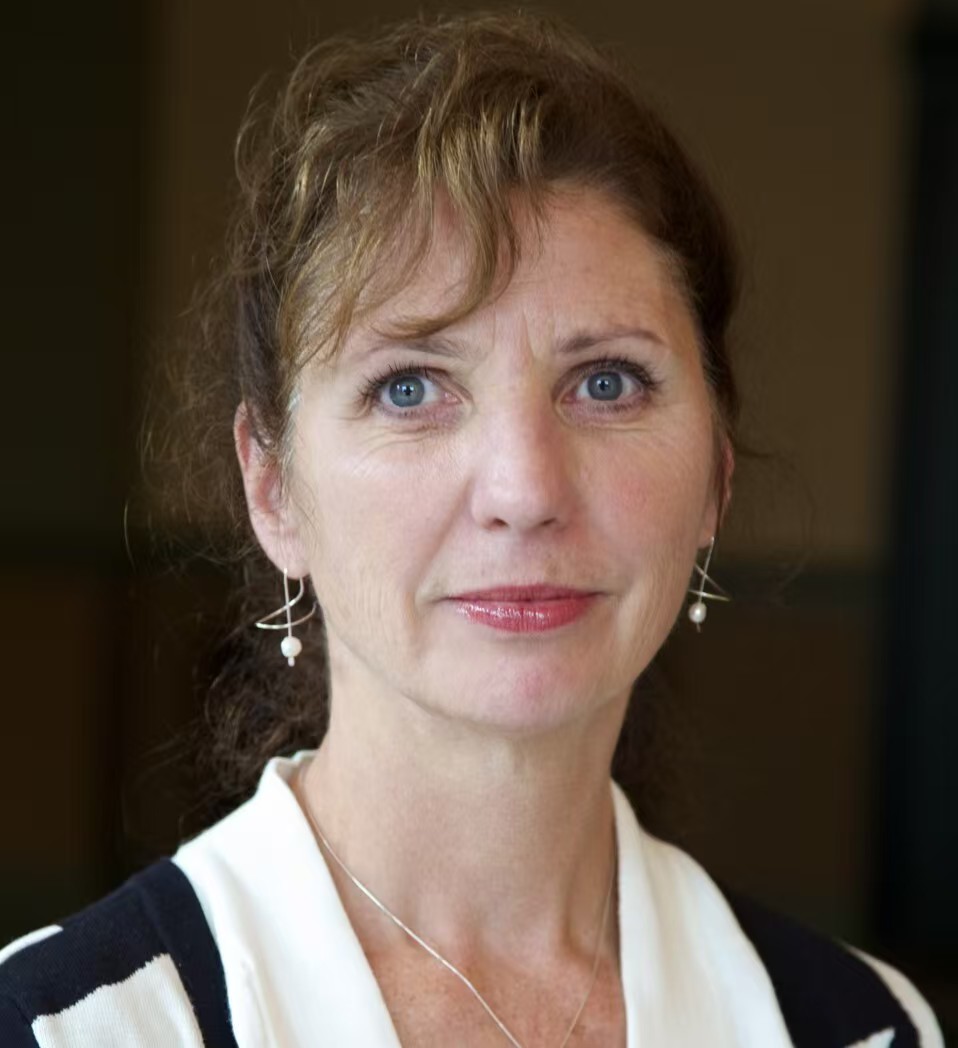In a fireside chat at Duke Kunshan University (DKU), Eileen McNeely, founding director of the Sustainability and Health Initiative for NetPositive Enterprise (SHINE) at Harvard University, and John Quelch, executive vice chancellor at DKU, explored the evolving role of Environmental, Social, and Governance (ESG) principles in business, the impact of climate change on public health, and the growing importance of workplace mental health.

The discussion on Feb. 12, moderated by Jingbo Cui, associate professor of applied economics and co-director of the Environmental Research Center at DKU, emphasized the need for interdisciplinary solutions to address global sustainability challenges.
Business Case for ESG
McNeely, a leading expert in workplace well-being and sustainability, emphasized that corporate sustainability is not just about compliance—it’s a long-term business strategy.
However, she cautioned against “greenwashing,” where companies exaggerate their sustainability efforts, saying that real impact comes from transparency and accountability, not just ambitious targets.
She also highlighted Harvard’s use of blockchain technology to track labor and environmental conditions across supply chains, helping companies ensure transparency and ethical compliance.
Climate Change and Public Health
McNeely recalled her experience treating coal miners in Appalachia suffering from black lung disease, which opened her eyes to the broader environmental factors affecting human health.
“That was my wake-up call. Instead of just treating individuals, I realized we need to think more broadly about the environment, our dependence on coal, and its impact on people,” she said.
She cited hurricanes in North Carolina and wildfires in California as urgent reminders that climate disasters have public health consequences.
Beyond the U.S., she pointed to Pakistan’s construction industry, where many workers suffer from chronic kidney disease due to extreme heat and lack of drinking water.
“This case clearly demonstrates how climate conditions, infrastructure, and workplace policies interact to affect workers’ health. It’s not just about heat—it’s about the lack of systemic support,” McNeely noted.
Mental Health and Climate Anxiety
McNeely warned that climate anxiety is rising as many young people feel the crisis is beyond their control.
“There’s a loss of hope and optimism that is actually a significant mental health challenge. We have to talk about how to give young people hope, autonomy, and a sense of control over their environment and health,” she said.
She noted that displacement caused by extreme weather also worsens mental health issues, with financial struggles and social disruptions compounding the stress.
Corporate Responsibility and Workplace Well-Being
McNeely stressed that companies must go beyond superficial wellness programs.
“If you want to build trust, you can’t just have ambitious sustainability goals. You actually have to deliver on them,” she said.
She cited Harvard’s SHINE research, which found that trust in leadership is a stronger predictor of employee well-being than workload.
“A supportive workplace culture is five times more predictive of employee health and performance than workload,” she explained.
She introduced SHINE’s Measurement of Human Flourishing, a model that evaluates well-being beyond traditional job satisfaction metrics.
“Traditionally, companies measure well-being through workload, sick leave, and job satisfaction. But our research shows that deeper cultural factors—such as trust in leadership, fairness, and recognition—are far more predictive of an employee’s health and performance,” she said.
Advice to DKU Students
McNeely encouraged students to embrace interdisciplinary collaboration to tackle global sustainability challenges.
“The world needs leaders who can connect business, health, and environmental science. The most impactful solutions will come from those who think across disciplines,” she said.
“Every breakthrough in sustainability started with individuals who refused to accept the status quo.”
Quelch underscored the importance of education in shaping future changemakers.
“Our role is to push the conversation forward. The future depends on our ability to connect the dots between climate, health, and sustainability,” he said.

